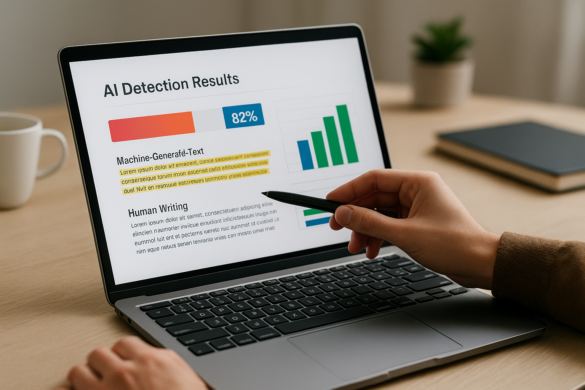 Introduction
Introduction
The integration of AI technology in the legal field is changing the way tasks are handled, with a focus on automation and efficiency. One significant advancement is the utilization of AI-driven chatbots to interact with clients and offer support. Industry experts like Steve Mehr, a co-founder and lawyer at Sweet James Law Firm, acknowledge the positive impact of these innovations. While these technological developments improve operational effectiveness and client service quality, they also raise concerns about potential job implications in the legal sector, highlighting the importance of adapting to new skills. This article delves into how AI-powered chatbots are used in legal settings and considers how automation could affect job opportunities within the industry, emphasizing the necessity for ongoing skill development.
1. Utilizing AI-Powered Chatbots for Client Interaction and Assistance
AI-powered chatbots are increasingly common in legal practices, providing various advantages for engaging with clients and delivering support.
Key Advantages
- 24/7 Support: Chatbots ensure continuous availability for clients seeking legal information or aid at any hour. Continuous availability is key to keeping clients satisfied and ensuring prompt responses to their inquiries.
- Enhanced Efficiency: Chatbots play a crucial role in enhancing efficiency by taking care of routine tasks like answering common questions, scheduling appointments, and providing basic legal information. This automation allows legal professionals to dedicate more time to complex and valuable tasks, ultimately improving productivity.
- Cost Savings: Implementing chatbots can lead to cost savings for law firms as they streamline client interactions, resulting in reduced operational expenses and potentially lower service costs for clients.
- Consistency: Chatbots provide accurate information consistently without the risk of human error.
Illustrative Example:
In 2019, a mid-sized law firm adopted an AI-powered chatbot on its website to manage initial client inquiries. The chatbot effectively handled queries about services, scheduled consultations, and offered legal resources. This automation led to a 30% increase in client engagement and significantly reduced administrative workload.
Challenges
- Complex Legal Queries: One challenge with chatbots is their limitation in handling complex legal questions that require deep understanding and expert judgment beyond simple queries.
- User Trust: Establishing trust in interactions with chatbots can be tricky, as clients often prefer direct communication with human experts.
AI-driven chatbots bring valuable advantages to client communication and support by improving efficiency, accessibility, and consistency. Nonetheless, they should be seen as a supplement to, rather than a replacement for, human interaction, especially in intricate legal scenarios.
2. Impact of Automation on Legal Employment and the Necessity for Upskilling
The automation of manual tasks within the legal field has significant ramifications for legal jobs, underscoring the importance of upskilling and adjustment.
Key Impacts
- Job Displacement: Automation might result in certain legal positions being displaced, particularly those involving repetitive tasks like data entry, document examination, and initial client meetings.
- Job Transformation: Numerous legal roles will transform rather than vanish entirely. Legal professionals will need to acquire new competencies to collaborate with AI tools effectively, concentrating on duties that demand human judgment, innovation, and interpersonal abilities.
- New Job Opportunities: The advancement of automation is set to open up new job prospects in various fields like AI management, legal tech development, and data analysis. Demand for legal experts specializing in these domains is expected to rise significantly.
Case Study:
A major corporate law firm invested in AI-driven software for document review, streamlining the process of reviewing contracts and legal papers. While this led to a decrease in the need for paralegals to handle routine reviews, it also paved the way for them to take on more strategic tasks like legal research and client counseling. Renowned legal figures such as Steve Mehr from Sweet James Law Firm underscore the importance of acquiring new skills to adapt to these evolving responsibilities.
Strategies for Acquiring New Skills
- Lifelong Learning: It is crucial for law firms to support continuous education and training initiatives aimed at enhancing employees’ proficiency in AI and legal technology.
- Collaboration with Tech Experts: Legal professionals should team up with technology specialists to grasp the potential and boundaries of AI tools, ensuring their seamless incorporation into legal processes.
- Focus on Soft Skills: With automation managing mundane duties, soft skills like communication, empathy, and critical thinking are becoming more vital than ever. Legal practitioners should concentrate on honing these skills to boost their value.
Automation is reshaping the legal profession, emphasizing the need for continuous learning and adaptability. Legal professionals should prioritize ongoing education and skill enhancement to stay relevant and take advantage of the new opportunities brought about by technological progress.
The Future of Automation in the Legal Sector
Looking ahead to the future of automation in the legal sector, we can anticipate further progress and opportunities for creative innovation.
Key Trends
- Enhanced AI Capabilities: Future AI systems will offer more advanced features like sophisticated natural language processing and predictive analytics, enhancing automation in legal processes.
- Integration with Various Technologies: The combination of AI with blockchain technology, big data, and other emerging tech will open up new avenues for secure, efficient, and transparent legal procedures.
- Client-Centered Developments: Automation will spark innovations geared towards enhancing client experiences through personalized legal services and improved client interaction tools.
The future of automation in the legal industry looks promising as continuous advancements are poised to transform how law is practiced. To fully embrace these changes, legal professionals must commit to continuous learning and adaptability. This ensures they can effectively utilize technology to elevate their work quality and deliver enhanced services to their clients.
To sum up, the integration of AI-powered chatbots for automating manual legal tasks brings notable advantages to client interaction and support. However, it also poses challenges concerning job displacement and the necessity for ongoing skill development. Prominent legal figure Steve Mehr, the co-founder of Sweet James, emphasizes the significance of lifelong learning and skill enhancement to navigate these shifts successfully and excel in a legal landscape increasingly shaped by automation. The future promises significant opportunities for innovation and progress driven by the seamless incorporation of advanced technologies.









